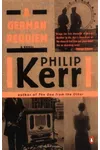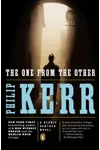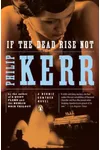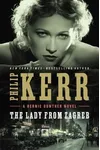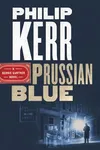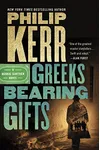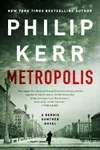Step into the shadowy streets of Nazi-era Berlin, where Bernard Gunther, a hard-boiled detective with a sharp tongue and a sharper moral compass, navigates a world of danger and deceit. Philip Kerr’s Bernard Gunther series, starting with the acclaimed Berlin Noir trilogy, blends gritty crime fiction with the chilling backdrop of 20th-century totalitarianism. This isn’t your average detective story—it’s a thrilling ride through history’s darkest corners, where survival demands wit, courage, and a touch of cynicism.
Gunther, a former soldier and Berlin cop turned private eye, is no knight in shining armor. His sardonic humor and refusal to bow to Nazi ideology make him a compelling antihero, solving mysteries while grappling with the moral compromises of living under a brutal regime. Whether you’re a fan of noir thrillers or historical fiction, this series offers a unique lens on a world gone mad.
How Bernard Gunther Began
British author Philip Kerr introduced Bernard Gunther in 1989 with March Violets, the first of the Berlin Noir trilogy. A former lawyer fascinated by Germany’s turbulent history, Kerr drew inspiration from classic noir writers like Raymond Chandler, imagining what a Philip Marlowe-esque detective might face in Nazi Germany. His meticulous research into the Third Reich’s socio-political landscape gave the series its authentic, immersive feel. Kerr’s goal was to explore morality through Gunther’s eyes—an ordinary man caught in extraordinary evil—making the series both a gripping mystery and a profound historical commentary.
The Heart of Bernard Gunther
The series spans 14 novels, each plunging Gunther into a new web of crime and corruption. March Violets (1989) sets the stage in 1936 Berlin, where Gunther investigates a stolen necklace, only to uncover a conspiracy reaching the Nazi elite. The Pale Criminal (1990) sees him coerced back into the Kripo to hunt a serial killer, exposing the regime’s twisted priorities. A German Requiem (1991) shifts to post-war Vienna, where Gunther navigates a ruined city to clear a friend’s name. Later, Prussian Blue (2017) weaves a dual timeline, blending 1939 intrigue with 1956 reflections, showcasing Gunther’s enduring struggle.
Kerr’s novels are more than whodunits. They explore themes of morality, survival, and resistance in a world where doing the right thing can cost everything. Gunther’s anti-Nazi stance and quick wit make him a beacon of defiance, yet his flaws—cynicism, womanizing, and occasional compromises—ground him as human. The vivid historical settings, from Berlin’s seedy underbelly to war-torn Europe, immerse readers in a noir atmosphere dripping with tension and moral ambiguity.
Why Bernard Gunther Resonates
The Bernard Gunther series has captivated fans of crime fiction and historical thrillers, earning praise for its blend of pulp-style storytelling and historical depth. Kerr’s ability to humanize a flawed hero navigating an inhumane system resonates with readers seeking complex characters and thought-provoking narratives. The series’ influence extends to adaptations, with Apple reportedly developing a prequel series based on Berlin Noir, signaling Gunther’s enduring appeal. Kerr’s untimely death in 2018 left fans mourning, but his final novel, Metropolis (2019), cemented Gunther’s legacy as a timeless figure in noir fiction.
- Publication Years: 1989–2019
- Number of Books: 14
- Notable Award: If the Dead Rise Not won the 2009 RBA Prize for Crime Writing
Ready to walk Berlin’s mean streets with a detective who defies the odds? Grab March Violets and dive into Bernard Gunther’s thrilling, morally complex world!


